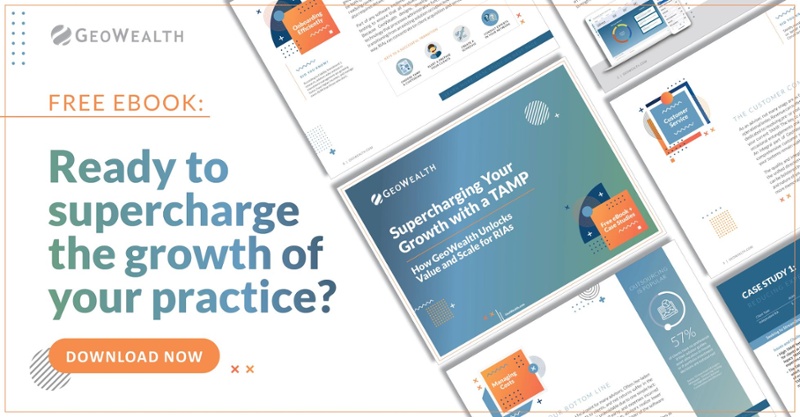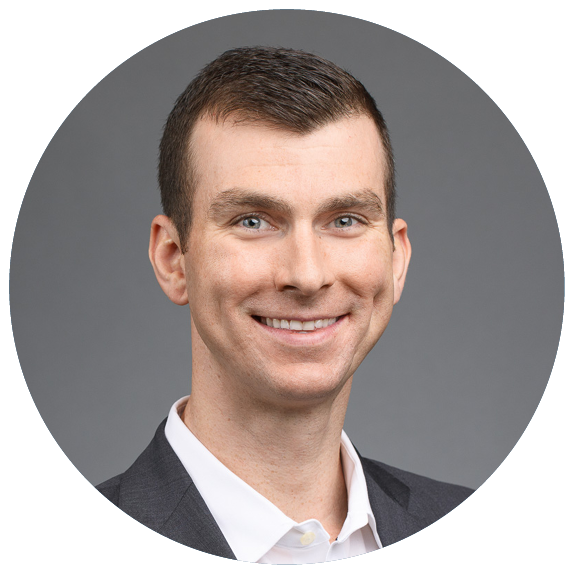
TAMPs get a bad rap. Let's change that.
They’re viewed as rigid and inflexible, forcing advisors to adjust their businesses to accommodate the TAMP platform instead of offering the flexibility and control to construct portfolios based on their own investment expertise and research.
They’re built on cumbersome, outdated software models – fundamentally at odds with the lightning-fast and easy-to-use technology today’s advisors need to remain competitive in our crowded landscape.
They’re prohibitively expensive, with hidden fees baked into the cost of using the platform.
Those observations aren’t totally off base, but they don’t tell the full story.
Like most stereotypes, those harsh generalizations don’t characterize all TAMPs. And advisors who avoid the TAMP space based on those preconceptions are missing out on the powerful competitive advantages they create.
The right TAMP = A differentiator
To remain competitive, advisors can’t afford to spend most of their time managing investments and tedious back-office systems. Independent advisors, many of whom are small-business owners, face increasing demands from clients and need to find a way to offboard non-client-facing tasks to focus on meeting client needs and business development functions.
Advisors are expected to be financial planners, psychologists, confidantes, and keepers of client goals –packaged into one. Advisors make the greatest impact on the front lines with clients. That is what drives retention, loyalty, and referrals – and ultimately business growth.
The questions below will help you determine whether a TAMP will empower you to establish an edge over the competition.
Does the technology improve operations?
Most stereotypes are borne from a kernel of truth. That’s certainly the case with the traditional TAMP reputation for leveraging outdated, unwieldy technology that requires advisors to spend more time trying to manage back-office tasks.
To provide the efficiencies that drive time and cost savings for advisors, technology needs to be intuitive and easy to use. It should be on par with today’s best digital retail experiences, which are driven by simplicity and thoughtful engineering to eliminate friction from every path.
Is the service comprehensive and hands-on?
Just because “turnkey” is built into the acronym’s definition doesn’t mean that your provider should be hands off. Historically, accessing a TAMP’s service and support has been a time-consuming struggle for advisors, who found themselves adjusting their operations to accommodate the shortcomings they’re paying for.
To help advisors improve the way they work and create the space they need to better serve their clients, future-ready TAMPs need to act not as platforms but as partners. TAMPs defying the status quo will work with advisors to understand their goals, help to optimize their workflows, and create the customized solutions needed to empower their success.
Does the investment management process align with your value prop?
Legacy TAMPs have traditionally opened a massive investment universe to advisors – at the advisors’ expense. But offering access to every investment strategist doesn’t help advisors serve their clients any more effectively.
Today’s advisors count investment advice and selection as a major component of their role and a critical way for continuously proving their value to clients. While many advisors appreciate having access to top-quality strategists for their discretionary investment needs, a majority prefer to construct portfolios based on their own investment philosophy, expertise, and research.
TAMPs offer flexibility and put the control in the hand of the advisor, empowering them to do their best work for their clients.
Where do the platform fees come from?
Over the past few years, the advisory fee model has changed drastically to account for the services clients value. Unfortunately, most legacy TAMP fee structures haven’t evolved accordingly. End clients and advisors find themselves absorbing the costs of third-party technology platforms when, in many cases, the TAMP is using another firm’s technology stack of cobbled together solutions.
TAMPs that develop their own proprietary technology can eliminate those additional platform fees, creating a compelling and competitive fee structure that increases clients’ net returns and advisory firms’ bottom lines.
The next time you let your preconceived notions about the TAMPs of yesteryear cloud your ability to decide whether to partner with a modern one, think about how the right TAMP might just be the differentiator you’ve been looking for.

